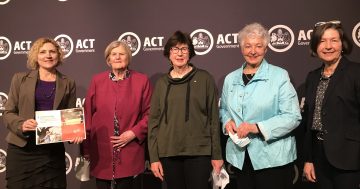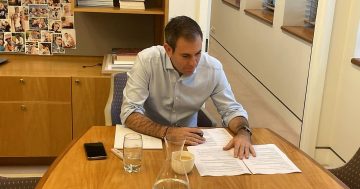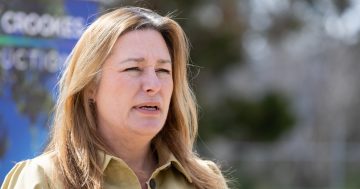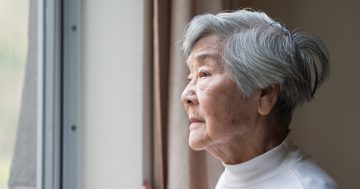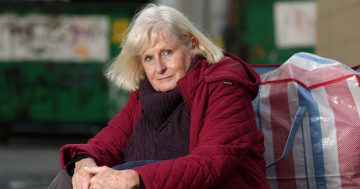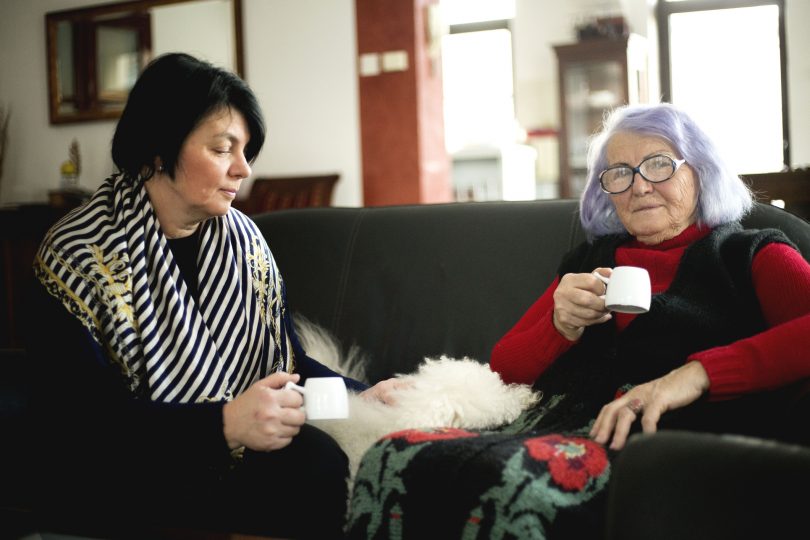
Older Australians have had significantly reduced contact with the outside world due to COVID-19. Photo: File.
One of the ironies of the COVID-19 crisis is that while it has forced us to physically distance and self-isolate, it has also highlighted just how interconnected we are.
Many people argue that a key to the success of Australia’s response to the health crisis has been our willingness to act as a group, change our own behaviour and give up many things we love up for a period in order to keep people safe and well. While we knew we were going to be potentially impacted very differently depending on our age and our life situation, we have been prepared to work collectively to keep each other safe.
We are not out of danger yet in relation to the health crisis and will need to continue to maintain good hygiene, physical distancing and other measures to limit the spread. We are, however, entering a new phase.
Now we see restrictions easing, and people are re-emerging from their homes, reconnecting with family and friends and re-engaging with the community. This provides great opportunities to re-imagine our relationships across generations and work to ensure that some of the inherent vulnerabilities faced by particular groups in our community are reduced and removed.
COVID-19 is a much greater risk to those who are older, who have underlying health conditions and underlying vulnerabilities. The need to self-isolate and physically distance has been extremely challenging for older people who have had to withdraw from their social networks, often needing to limit contact with family and loved ones while living in facilities that have significantly reduced contact with the outside world.
While this period has been extreme, it also reflects some of the ongoing challenges faced by many older people in everyday life, with loneliness and exclusion increasingly being recognised as a real issue. As we move towards regaining our normal lives, we have a chance to better connect with older people in our communities, and ensure that as we rebuild a better normal we include older people as valued, connected and supported members of our community.
Given all this, the launch of the ACT Government’s Age-Friendly City Plan 2020-2024 couldn’t be more timely. It’s a positive plan that outlines opportunities and focus areas.
However, it raises big issues that we need to deal with as a community. These include how we keep older people safe and protected from exploitation and abuse. They include how we ensure older people stay safe and connected in their homes, their neighbourhoods and communities, particularly if they are managing health challenges such as dementia. They also include how we ensure that in a struggling labour market older people aren’t subject to discrimination and exclusion.
In the wake of such a dramatic year, many people have forgotten the findings of the interim report of the Royal Commission into Aged Care Quality and Safety, simply and shockingly titled ‘Neglect’.
The report highlighted the reality that many vulnerable older people are subject to care that is unsafe, of poor quality, uncaring and, in many instances, neglectful. While many of the issues confronting the Royal Commission fall under Federal Government responsibility, we all have a role to ensure that our older citizens are valued and cared for, particularly in facilities located in our neighbourhoods and suburbs.
Good work has started. The recent introduction of legislation that makes elder abuse a crime is a good enhancement to current protection. But more is needed.
This can include relatively simple changes such as ensuring the ACT signs up to the National Code for Unregistered Health Workers, ensuring aged care workers are required to register as working with vulnerable people and expanding the Official Visitors Scheme to include aged care facilities. It should also include better community education around elder abuse, expand the Reportable Conduct Scheme to include abuse against vulnerable adults and ensuring better resourcing of the organisations tasked with protecting vulnerable people – including the ACT Human Rights Commission, and Public Trustee and Guardian.
I think we have an opportunity to improve the lives of older Canberrans as we enter this new phase of easing restrictions. What do you think we should do to make a difference?
Rebecca Vassarotti is an ACT Greens candidate for the seat of Kurrajong in the upcoming Territory election and the candidate spokesperson for older people. She is a community member on guardianship matters in the ACT Civil and Administrative Tribunal and was the acting CEO of Alzheimer’s ACT in 2018.











